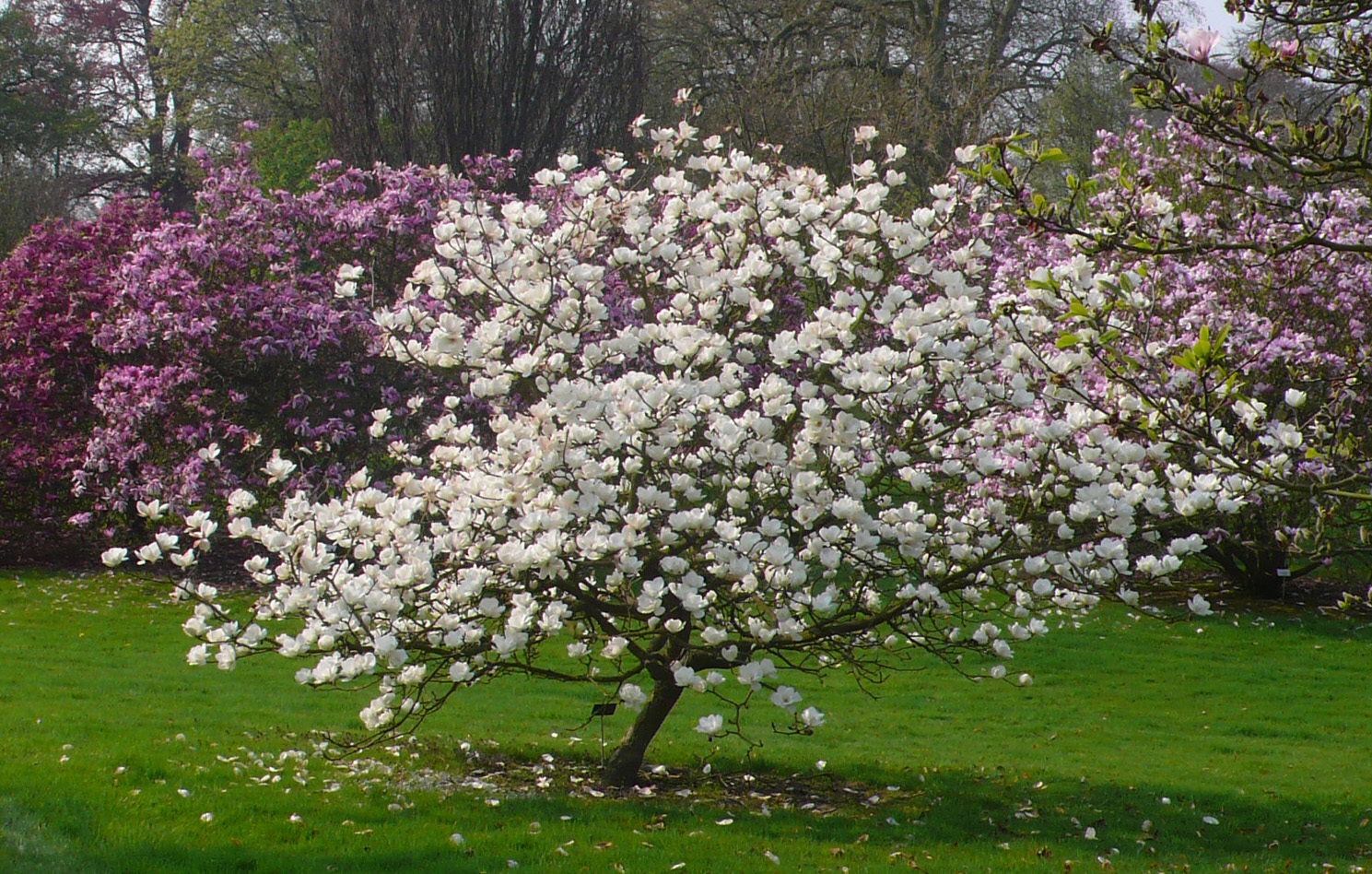Absolutely! Here is a long article about Magnolia denudata, with the list items replaced with H2 and H3 headers.
# Magnolia Denudata: The Elegant Yulan Magnolia
Magnolia denudata, commonly known as the Yulan magnolia, is a deciduous tree native to central and eastern China. Revered for its stunning, fragrant white flowers that bloom in early spring, it holds a significant place in Chinese culture and horticulture. This article delves into the various aspects of Magnolia denudata, exploring its botanical characteristics, cultural significance, cultivation, and ecological importance.
Botanical Characteristics
Magnolia denudata is a member of the Magnoliaceae family, an ancient lineage of flowering plants. Its distinguishing features include:

Image Source: treesandshrubsonline.org
Deciduous Nature
The tree sheds its leaves in autumn, entering a period of dormancy during the winter months.
Flowers
The most prominent feature is its large, upright, and fragrant white flowers.
Leaves

Image Source: treesandshrubsonline.org
The leaves are large, obovate, and a vibrant green.
Growth Habit
It typically grows as a small to medium-sized tree, reaching heights of 30 to 40 feet.
Cultural Significance
Magnolia denudata has a rich history in Chinese culture:
Historical Importance
It has been cultivated in Chinese temple gardens since the Tang Dynasty (618–907).
Symbolism
The pure white flowers symbolize purity and nobility.
Horticultural Popularity
Cultivation
Growing Magnolia denudata requires specific conditions:
Climate and Soil
It prefers full sun or partial shade.
Planting and Care
Planting is best done in spring or autumn.
Propagation
Propagation can be done by seed or grafting.
Ecological Importance
Magnolia denudata plays a role in its ecosystem:
Pollination
The flowers attract pollinators, particularly beetles.
Habitat
It provides habitat for various insects and birds.
Uses
The flowers are used in some culinary practices.
Challenges and Considerations
While beautiful, Magnolia denudata can face challenges:
Frost Damage
The early blooms are susceptible to frost damage.
Disease and Pests
It can be susceptible to diseases like verticillium wilt.
Maintenance
Conclusion
Magnolia denudata, with its stunning white blooms and rich cultural history, remains a beloved tree in gardens worldwide. Understanding its botanical characteristics, cultivation requirements, and ecological importance allows us to appreciate and preserve this magnificent species.
magnolia denudata
